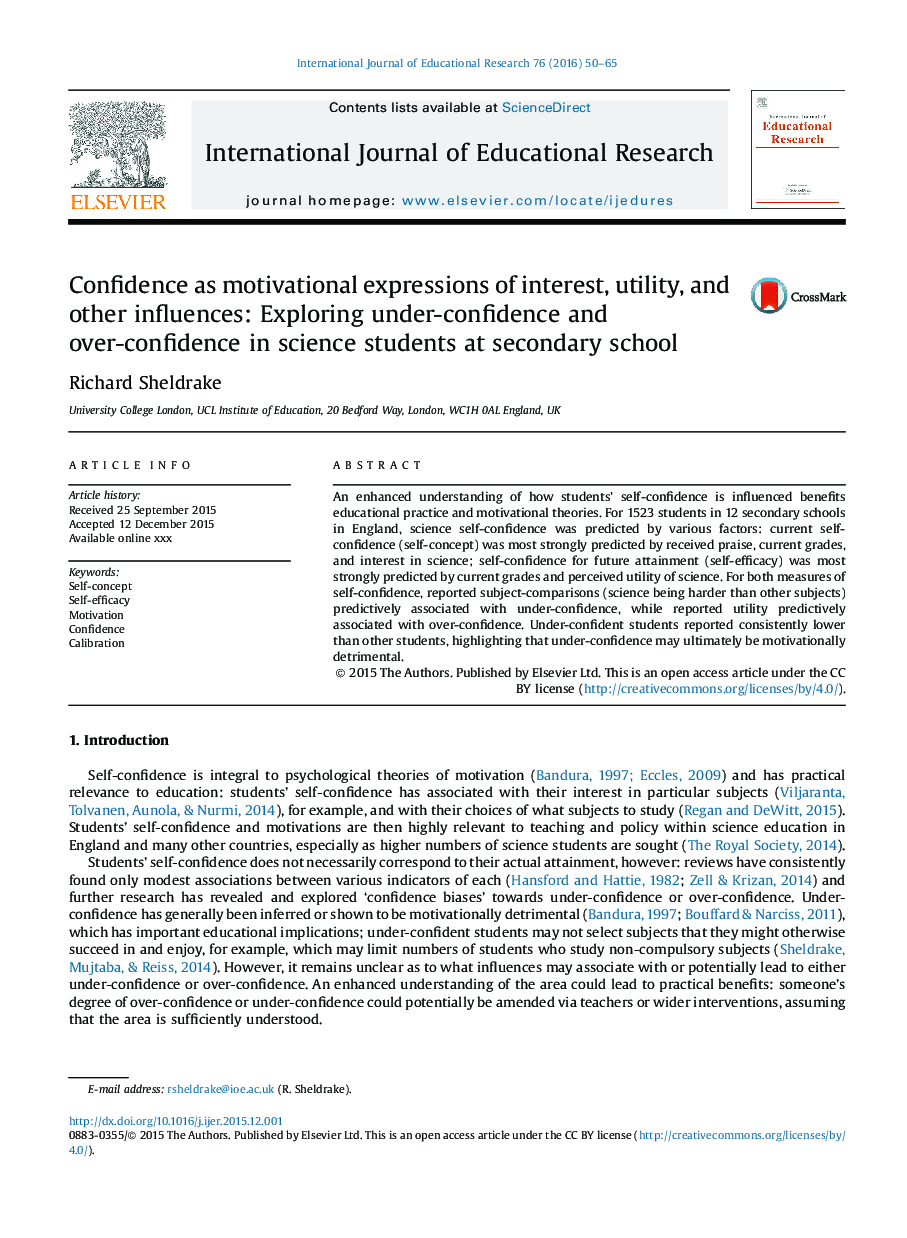| Article ID | Journal | Published Year | Pages | File Type |
|---|---|---|---|---|
| 6841556 | International Journal of Educational Research | 2016 | 16 Pages |
Abstract
An enhanced understanding of how students' self-confidence is influenced benefits educational practice and motivational theories. For 1523 students in 12 secondary schools in England, science self-confidence was predicted by various factors: current self-confidence (self-concept) was most strongly predicted by received praise, current grades, and interest in science; self-confidence for future attainment (self-efficacy) was most strongly predicted by current grades and perceived utility of science. For both measures of self-confidence, reported subject-comparisons (science being harder than other subjects) predictively associated with under-confidence, while reported utility predictively associated with over-confidence. Under-confident students reported consistently lower than other students, highlighting that under-confidence may ultimately be motivationally detrimental.
Related Topics
Social Sciences and Humanities
Social Sciences
Education
Authors
Richard Sheldrake,
